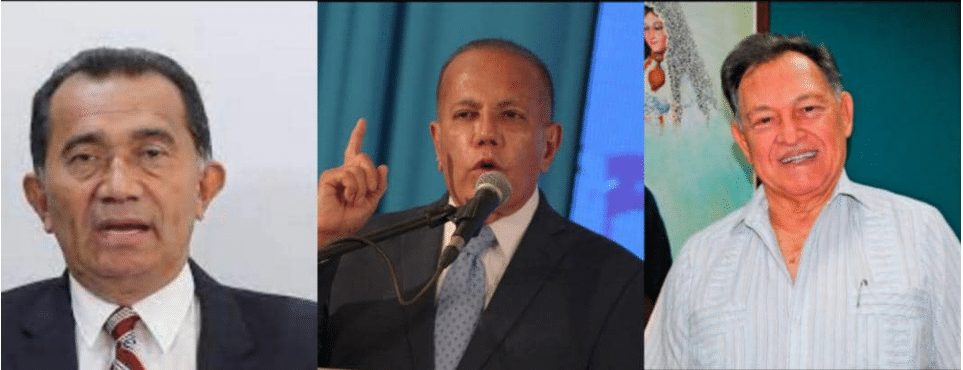
Three opposition governors were elected in Venezuela's 21N elections

Orinoco Tribune – News and opinion pieces about Venezuela and beyond
From Venezuela and made by Venezuelan Chavistas

Three opposition governors were elected in Venezuela's 21N elections
This Sunday night, Venezuela’s National Electoral Council announced the winners of the country’s governorships, three of which were won by opposition candidates—the states of Cojedes, Nueva Esparta and Zulia.
This announcement signified a resounding victory for the Great Patriotic Pole in the regional and municipal elections, in which it earned 21 of Venezuela’s 24 governorships.
The fact that the opposition managed to come out with only three governorships in their name is further proof that the opposition is wrought with internal divisions and lacks overall credibility.
Who are these opposition candidates?
Alberto Galíndez
As a representative of the Democratic Unity Roundtable (MUD), Galíndez was elected in the state of Cojedes with 64,171 (48.5%) votes to his name. He was followed by Nosliw Rodríguez of the United Socialist Party of Venezuela (PSUV), who obtained 49,023 votes (37.7%).
Galíndez has a long political career behind him in which he was mayor and then governor in Tinaco between 1996 and 2000.
At 66 years old, he has returned 21 years later to hold the governorship. All of this, despite the fact that during his last term, in 2000, he was investigated for administrative irregularities in which he was found guilty, and was removed from office by the National Legislative Commission and the General Comptroller.
RELATED CONTENT: 21N Elections: Venezuela’s CNE Issues Preliminary Results for Governorships
Morel Rodríguez
At 81 years of age, Morel Rodríguez Ávila is back in the governorship of the state of Nueva Esparta. As the candidate of Fuerza Vecinal [Neighborhood Force] he obtained 42.6% of the vote, followed by PSUV candidate Dante Rivas who brought in 39.2%.
Nueva Esparta is not seeking a political makeover, as Rodríguez was also elected between 1990 and 1993 as the first popularly elected governor. However, he did occupy the post prior to that period when he was appointed by President Jaime Lusinchi in 1987.
Previously, Rodríguez Ávila was in the ranks of Democratic Action and held various regional and municipal positions. He was elected governor in 2004 and 2008, but lost in 2012 with 45.7% of the ballots to PSUV candidate Carlos Mata Figueroa, who received 54.1% at that time.
RELATED CONTENT: Anti-Chavismo Comes Out to Vote and Calls for Participation in 21N Regional Elections
Manuel Rosales
Rosales is perhaps one of the better-known figures of the opposition politicians, particularly due to his media presence and personality, not to mention his corruption scandals.
In the state of Zulia, MUD’s Manuel Rosales returns to the governorship at 68 years of age, after obtaining 56.9% of the vote to beat PSUV’s Omar Prieto.
Any comment on the political career of Manuel Rosales requires one to mention his escape to Peru after he was charged with illicit self-enrichment during his campaign for the governorship of Zulia between 2002 and 2004, in which funds were discovered by the authorities that he was not able to account for.
After spending more that six years in “self-imposed exile,” he returned to Venezuela and was detained and imprisoned by the authorities for his crimes. A year later he was put into house arrest and in 2016 he became a free man.
During his career, he has acted as mayor of Maracaibo and governor of Zulia. His most memorable loss is that which he suffered against President Hugo Chávez in the 2008 presidential elections.
Featured image: Three opposition governors were elected in Venezuela’s 21N elections. Photo: RedRadioVE.
Translation: Orinoco Tribune
OT/KW/SL